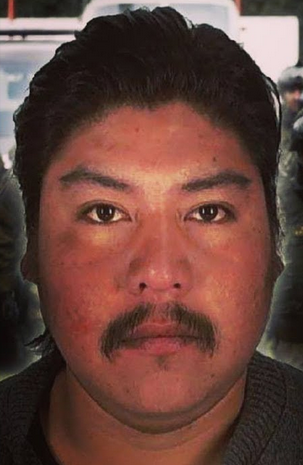Camilo Catrillanca was a 24-year-old indigenous Mapuche activist in southern Chile who came from a long line of community leaders. His grandfather, Juan Catrillanca, is the lonko (leaader) of Temicuicui, an area which has long been regarded as a symbol of Mapuche resilience.
Camilo’s father Marcelo described his son as a weichafe, a term which can be translated as “warrior” but also shares some of the connotations of “wise man.” Marcelo said that his son was well regarded in the community and that being his father had been a source of joy. Camilo had a six-year-old daughter and a pregnant wife. He died before finishing the house he was building for them.
On the 14th of November, 2018, a newly created special ‘anti-terrorist’ unit of the Chilean police known as Comando Jungla entered the Mapuche traditional community of Temukuikui near the town of Ercilla in the Araucanía region, approximately 370 miles south of Santiago. Claiming to be in pursuit of local car thieves, the operation involved hundreds of police offices with two helicopters.
Camilo had gone out to pick coriander with a 15-year-old family member when he was shot multiple times. According to community members, despite having suffered serious wounds, he was surrounded by police and taken to a local clinic instead of a hospital. In a statement to the Public Ministry, the minor who accompanied Camilo claims that instead of heading straight to the clinic, the officers went around the town square. The boy also described multiple ways in which he himself was assaulted by the police afterwards.
Official accounts of the events initially differed significantly from what actually happened. Though he tweeted his condolences, the Chilean President qualified them with the phrase “the carabineros (police) have the right to defend themselves when they are attacked.” However, the autopsy found that the kill shot entered Camilo’s body through the back of his neck, raising the question of why an assailant would be facing the opposite direction of the people he was threatening. The fifteen-year-old who was with Camilo witnessed an officer remove the memory card from the video camera which had captured the events; the Minister of the Interior eventually confirmed this in a press conference. The government’s repeated insistence that Camilo had a criminal record was also disproved.
All of these inconsistencies enrage millions of Chileans whose reaction was articulated by student Martina Tobar: “this case has mocked the intelligence of the Chilean citizenry.” Protests have erupted all over the country and several officials have had no choice but to resign their posts.
The context
Camilo’s death is only the latest in a series of actions by the Chilean State which has come to the defence of the forestry industry and other firms that are exploiting southern Chile’s natural resources such a water. While the forestry industry argues that they have legally bought or rented large tracts of land in this part of the country, indigenous communities for years have complained about the negative environmental impacts of their logging activities which, among other effects, results in soil erosion of indigenous crops and contaminates livestock food supplies.
Camilo is the fifteenth Mapuche activist killed since 2001, going by the tally published by indigenous newspaper Werkén.cl, which provides a list of the other 14 cases. Earlier this year, the Red por la Defensa de la Infancia Wallmapu (Network for the Defense of Childhood Wallmapu) noted that more than 40 Mapuche children have been mistreated by police, including suffering gunshot wounds.
Compiled from reports by Red Pepper, 24 Horas and El Comercio

